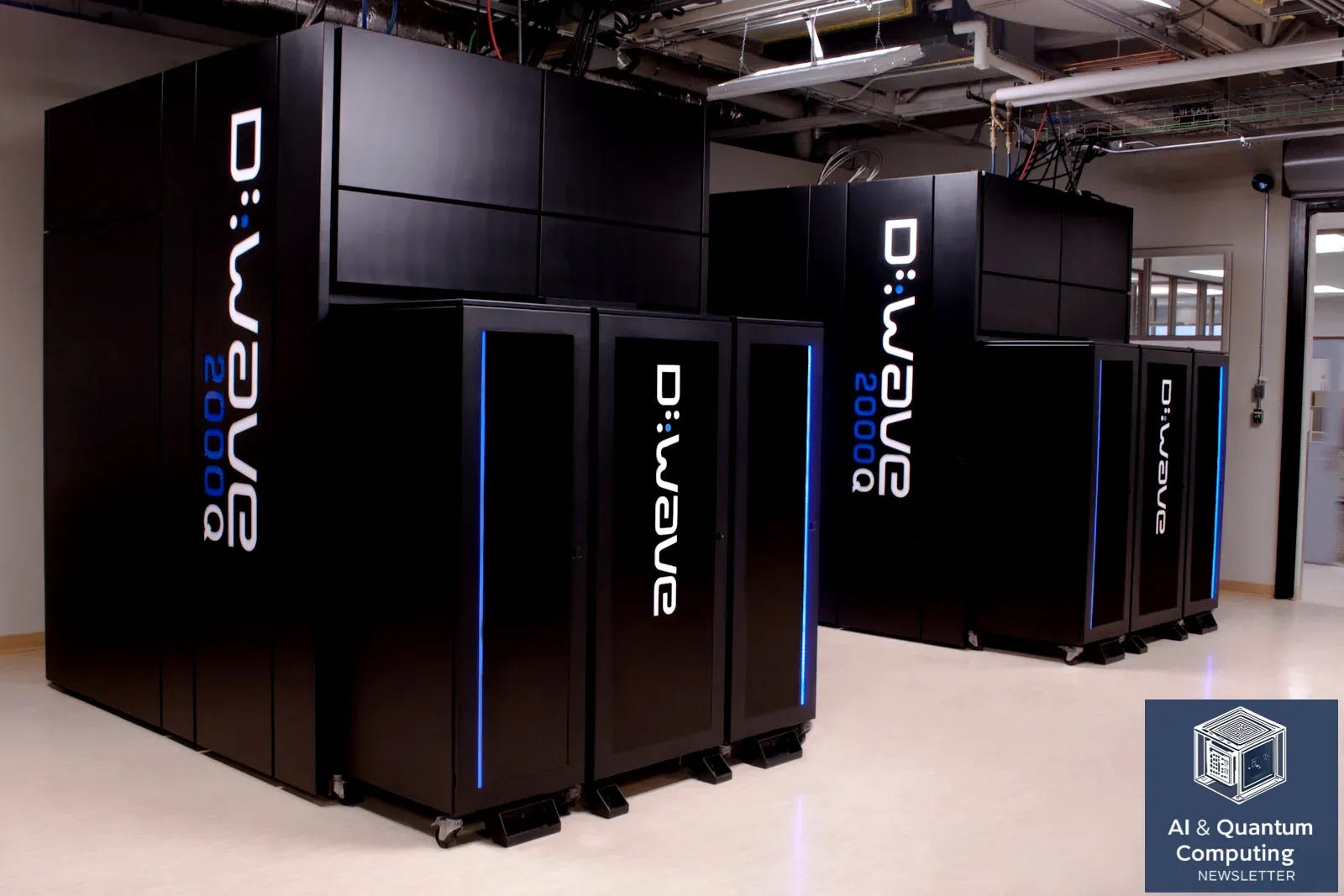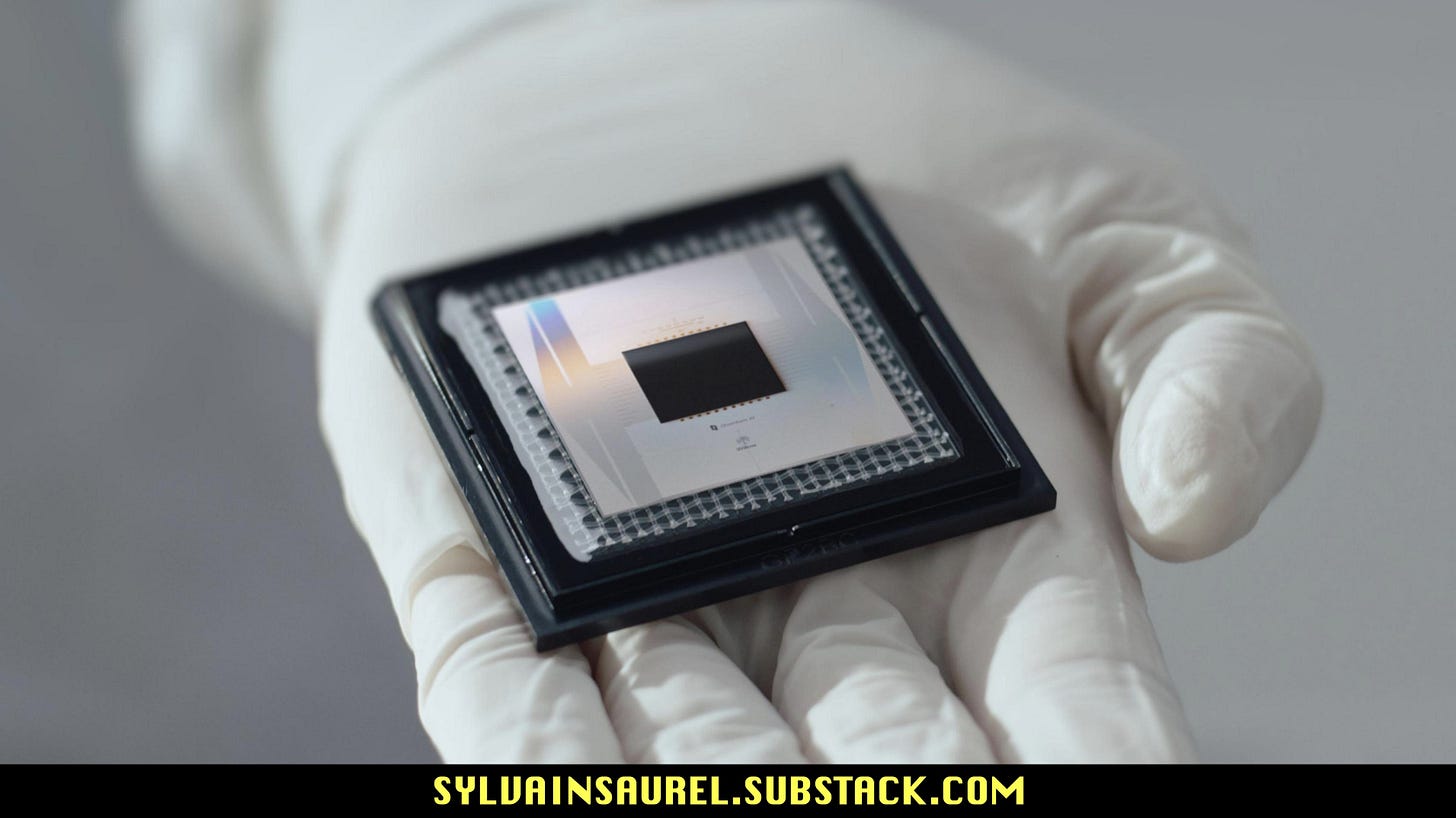D-Wave's Quantum Computer Solves a Previously "Impossible" Problem in a Matter of Minutes.
D-Wave reaches an important milestone in the quest for quantum supremacy.
Whenever major new advances are made in quantum computing, you're used to seeing the names of tech giants like Google, Microsoft or IBM pop up. If it's not them, it's up-and-coming Chinese giants who are making the buzz. Today, the headlines in the world of quantum computing are monopolized by a company with less stock market clout, but which presents itself as nothing less than the first quantum computing company in history. D-Wave Quantum Inc. was founded in 1999. Listed on the NYSE, D-Wave is based in Canada. Its first 28-qubit quantum processor for simulated quantum annealing dates back to 2007. An eternity in this ultra-competitive world where everything seems to be speeding up.
If D-Wave is making headlines, it's because, using its quantum annealing computer, the company has solved a complex problem that even the world's most powerful supercomputers would take a million years to handle. This demonstration could well mark the beginning of a new era in quantum computing.
Unlike conventional computers, which use bits to store and process information in the form of 0s and 1s, quantum computing relies on qubits. These units of information, derived from the principles of quantum mechanics, can exist in several states simultaneously, thanks to a phenomenon known as superposition. This enables quantum computers to perform much more complex and faster calculations than their classical counterparts.
Let's take the example of a particularly difficult problem to solve: programmable spin glasses. These magnetic materials, which can be used in applications as varied as semiconductors, sensors, or even in the design of new drugs, are incredibly complex. The interactions between particles in these materials occur on a microscopic scale and are almost impossible to simulate with traditional computers. Indeed, even supercomputers, the most powerful computers available today, struggle to handle these simulations efficiently. Quantum computers, however, could change all that.
D-Wave brings a quantum solution with its computer
This is where the D-Wave computer comes in, a quantum-annealed prototype that uses quantum mechanics to find optimal solutions to complex problems. The principle of quantum annealing is quite simple: the computer starts with a superposition of all possible solutions (i.e. a high-energy state), then slowly modifies the parameters of the system to find the most stable and optimal solution corresponding to a low-energy state.
By applying this approach to the problem of programmable spin glasses, the D-Wave team was able to obtain results in just a few minutes. Compared with the Frontier supercomputer at Oak Ridge National Laboratory (ORNL), which would have taken a million years to solve the same problem, this breakthrough is nothing short of spectacular.
An important milestone in the quest for quantum supremacy
This moment is also an important milestone in the quest for quantum supremacy, a term that refers to the ability of a quantum computer to solve a specific problem much faster than classical computers. Whereas previous demonstrations of quantum supremacy have often been limited to theoretical experiments or calculations with no real application, this achievement marks a real turning point.
The D-Wave researchers have proved that a quantum computer can solve a useful, relevant, and highly complex problem, something that the most powerful supercomputers could not even contemplate.
Unlimited horizons for D-Wave
This breakthrough, reported in the journal Science, could pave the way for incredible applications in many fields. In medicine, for example, quantum computing could help accelerate the discovery of new drugs by rapidly simulating the behavior of complex molecules.
In materials, understanding the quantum interactions between magnetic materials could lead to revolutionary discoveries in semiconductors, motors, and even batteries.
However, the implications go far beyond this. Quantum computing could potentially help solve some of the world's most pressing challenges, such as climate change, by optimizing energy systems or modeling complex weather phenomena. We could also see advances in areas such as artificial intelligence, cryptography and even supply chain optimization.
In short, this is just the beginning of the quantum revolution, and D-Wave intends to make its mark among the tech giants.
Investing in This Industry Today Is Equivalent to Buying Bitcoin at $500 in 2013.
This opportunity is probably The Next Big Thing.
Who Will Pay the Accurate Price of Artificial Intelligence?
Is the party in the AI world about to end?
Google Proposes a Hydride Quantum Simulator That Could Revolutionize Physics. Here’s an Overview.
Google continues to work hard to be one of the big winners in the quantum computing industry of the future. Google's quantum physics researchers have just developed an innovative approach to quantum simulation that uses both analog and digital methods.




